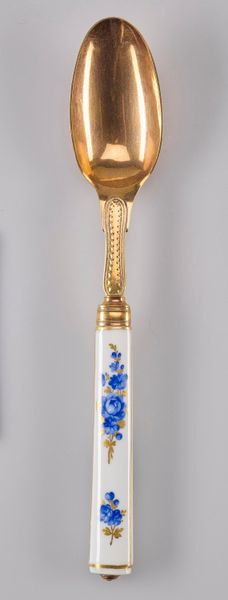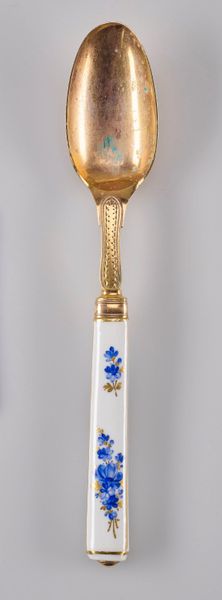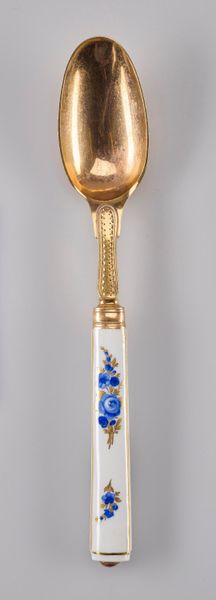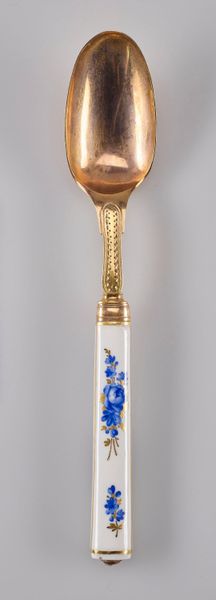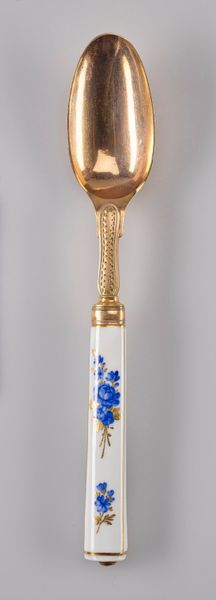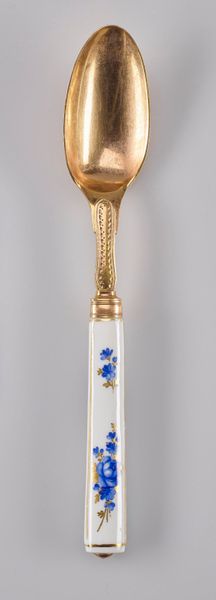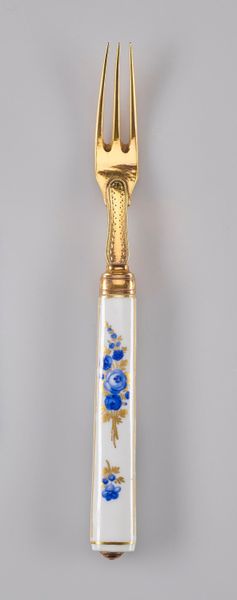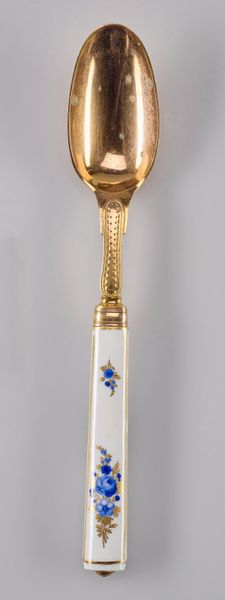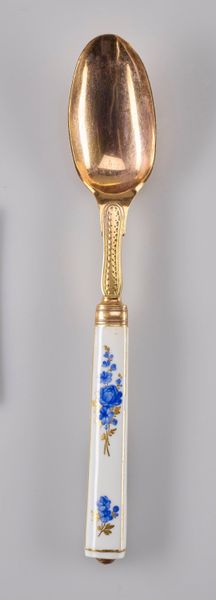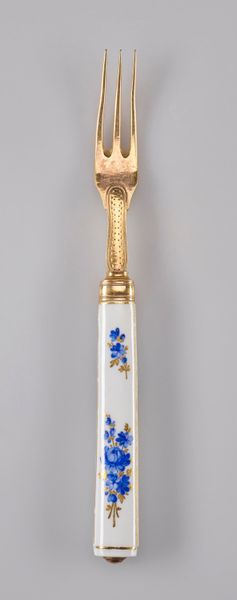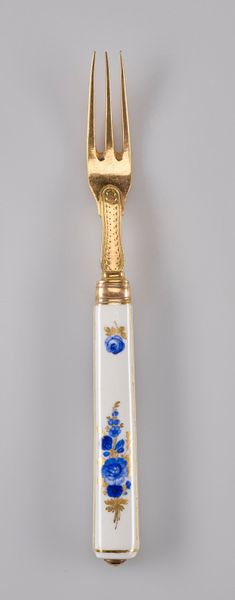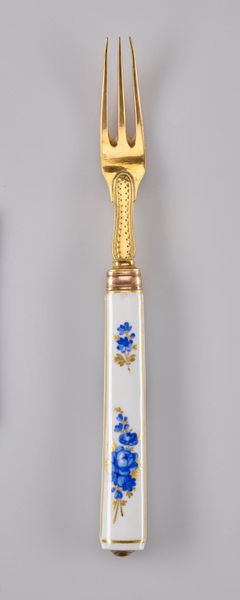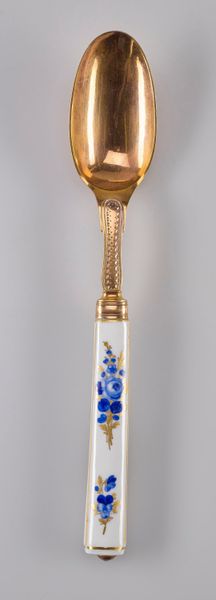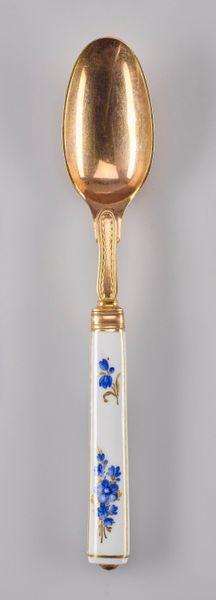
ceramic, porcelain
#
ceramic
#
porcelain
#
orientalism
#
decorative-art
Copyright: Public Domain
Editor: So, this is a spoon crafted around the 18th century by the Meissen Porcelain Factory. It’s porcelain and ceramic. What really grabs my attention is how such a simple object is elevated with this delicate floral design. What story does it tell you? Curator: It's fascinating to consider the social context around such a seemingly mundane object. This isn't just any spoon; it’s a Meissen porcelain spoon. Think about who would have owned and used such an item. This factory gained notoriety in Europe, catering to a privileged class. How do you think owning objects like this might have shaped their social identity? Editor: Well, it definitely screams luxury and status, right? It's far removed from a purely functional item. The fact that it’s porcelain shows that functionality wasn't the primary concern; the look of it was. Curator: Precisely. And consider the implications of porcelain production itself. It’s an industry deeply rooted in socio-economic and colonial power structures. How do you see the "orientalism" tag influencing how porcelain was made at that time in Europe? Editor: Oh, it would mean Europeans trying to replicate and emulate designs from East Asia! A way for them to capture, and maybe claim, the "exotic". The European elite admired those designs so much! Curator: Exactly! It reflects Europe’s fascination with, and often, misrepresentation of Eastern cultures. Objects like these become carriers of cultural appropriation and symbolic power. Do you think museums today are doing enough to contextualize objects within their history of colonialism? Editor: That’s a tough question! It feels like there's a constant balancing act. Displaying the object as an aesthetic achievement, versus explaining its socio-political baggage... Curator: It’s a necessary tension. Reflecting on how everyday objects become imbued with complex meanings helps us understand the public role art plays. Thanks for these insightful questions! Editor: Thank you! I never thought about a spoon in this much detail. I'm seeing so much more to it.
Comments
No comments
Be the first to comment and join the conversation on the ultimate creative platform.
